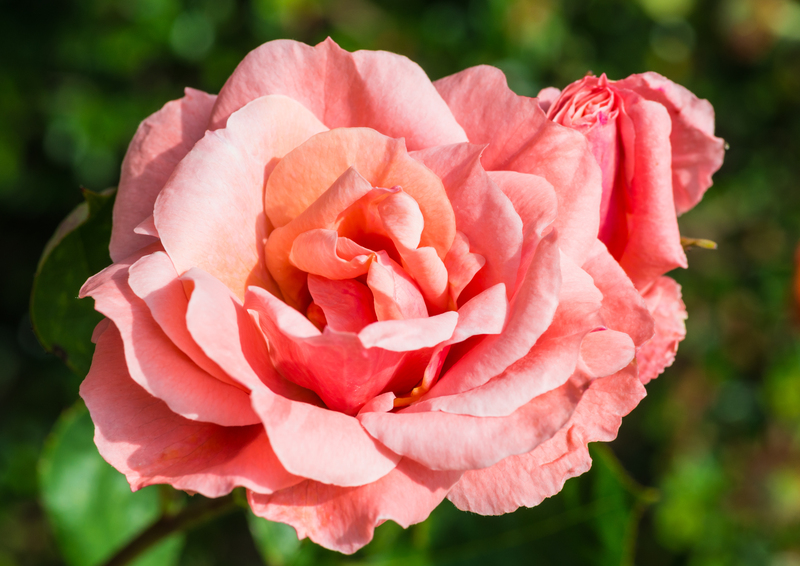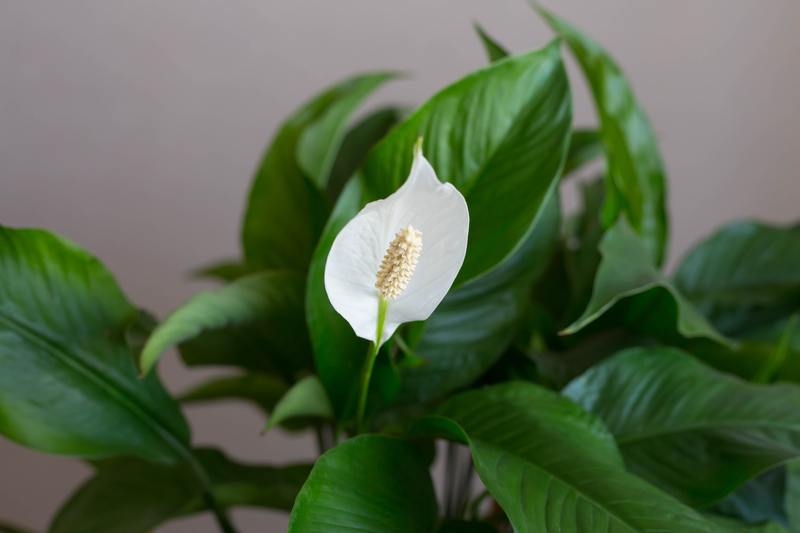Seeds of Knowledge: 9 Tips for Gardening Beginners
Posted on 01/06/2025
Seeds of Knowledge: 9 Tips for Gardening Beginners
Gardening is a timeless and rewarding hobby that allows you to connect with nature, grow your own food, and create beautiful outdoor spaces. If you're new to the world of gardening, you might feel overwhelmed by all the information out there. Don't worry! This comprehensive guide provides nine essential tips for novice gardeners to foster a flourishing and enjoyable gardening experience. These seeds of wisdom will set you on the path to becoming a confident and successful gardener.
1. Know Your Space and Sunlight
The first step for any gardening beginner is understanding your garden space. Every garden is unique, and evaluating your specific conditions lays the groundwork for your planting success.
- Measure your available space - Whether you're working with a yard, balcony, or windowsill, knowing your limits helps you plan realistically.
- Observe sunlight - Most vegetables and flowers need at least 6 hours of direct sunlight. Check which areas are sunniest at different times of day and plan your planting accordingly.
- Consider shade - If you have shady spots, look for plants that thrive in partial or full shade, such as ferns, hostas, or hydrangeas.
Tip: Take notes or photos throughout the day to track how sunlight moves in your space. This knowledge will be invaluable when deciding where to plant.

2. Start with the Right Tools
No gardener gets far without some basic equipment. Investing in quality tools will make gardening easier and more enjoyable.
- Hand trowel and cultivator
- Watering can or hose with spray nozzle
- Pruning shears for trimming
- Gardening gloves to protect your hands
- Spade or shovel for larger projects
It's not about having the biggest collection, but rather the most useful and reliable tools for your needs.
3. Choose the Right Plants for Beginners
One of the most common mistakes new gardeners make is selecting plants that are too delicate or demanding. For successful gardening, choose easy-to-grow plants that suit your local climate and soil.
Vegetables for Novices
- Lettuce and leafy greens
- Radishes
- Zucchini
- Tomatoes (especially cherry varieties)
- Herbs like basil, parsley, and mint
Flowers for Beginners
- Marigolds
- Sunflowers
- Pansies
- Zinnias
- Lavender
Local garden centers and nurseries are excellent sources of advice for what grows best in your region.
4. Learn About Your Soil
The foundation of a thriving garden is healthy soil. Understanding your soil type helps you choose suitable plants and know what amendments may be needed.
- Sandy soil drains quickly but may need more organic matter.
- Clay soil holds water and can get compacted; adding compost helps loosen it.
- Loamy soil is ideal, offering a good balance of drainage and nutrients.
Buy a simple soil test kit or send a sample to a local extension service. Testing helps determine pH and essential nutrient levels.
Tip: Always enrich your soil with organic compost. This boosts nutrients and improves structure, whether you're gardening in beds or containers.
5. Water Wisely
Overwatering or underwatering is one of the most common pitfalls for new gardeners. Here's how to develop good watering habits:
- Water deeply and less frequently to promote deep root growth.
- Morning is the best time to water - this reduces disease risk and allows plants to absorb moisture before afternoon heat.
- Check soil moisture by inserting your finger an inch deep; water only if it feels dry.
- Mulch around plants to help retain moisture and suppress weeds.
Different plants have different water needs--learn about the requirements of what you are growing.
6. Prioritize Plant Placement and Spacing
Good garden design starts with understanding how much room plants need to grow. Overcrowding can lead to competition for nutrients, poor air circulation, and increased disease risk.
- Read plant tags or seed packets for spacing recommendations.
- Remember that seeds and seedlings will grow larger--give them ample room.
- Plan for mature plant size, not just seedlings.
- Consider companion planting to maximize space, deter pests, and boost yields (e.g., basil with tomatoes).
Tip: Sketch a simple garden plan before you start planting. This "seed of planning" can prevent future headaches and ensure a much stronger garden layout.
7. Feed Your Plants the Right Way
Plants need more than water and sunlight; they thrive on a steady diet of nutrients. Choosing the right fertilizer is key to healthy growth, especially for vegetable gardening beginners.
- Organic compost is the gold standard for feeding soil life and plants.
- Use a balanced granular or slow-release fertilizer as directed.
- Liquid fertilizers are good for giving young seedlings a quick boost.
Pro Tip: Always follow package instructions to avoid "burning" plants with too much fertilizer.
8. Be on the Lookout for Pests and Problems
Even the most carefully tended garden can attract pests and diseases. Prevention and early action are the best defense for beginners in gardening.
- Inspect plants regularly for chewed leaves, discoloration, or stunted growth.
- Remove visible pests by hand or spray with a neem oil solution (a natural pesticide).
- Encourage beneficial insects like ladybugs and lacewings to keep bad bugs in check.
- Avoid overwatering and ensure good air circulation to minimize fungal diseases.
If you're unsure about a problem, take a sample to your local garden center for advice.
9. Don't Be Afraid to Experiment and Learn!
Gardening is both science and art, and much of your growth comes from experience. Embrace failures as learning opportunities. The best seeds of knowledge are sown over time through trial, observation, and curiosity.
- Keep a garden journal to track what works and what doesn't.
- Try growing something new each season.
- Ask neighbors or join online gardening groups for advice specific to your area.
- Visit public gardens for inspiration and ideas.
Remember: Even master gardeners face setbacks. Each season you try is a chance to grow as a gardener!
Bonus: Sustainable Gardening Practices for a Greener Future
As you expand your gardening skills, consider the environmental impact of your choices. These eco-friendly practices not only benefit your plants but also promote a healthier planet:
- Start a compost bin for kitchen and yard waste.
- Grow native and pollinator-friendly plants to support wildlife.
- Mulch to reduce water use and prevent soil erosion.
- Use natural pest controls whenever possible.
Embracing sustainable gardening benefits your garden, local ecosystems, and future generations.

Frequently Asked Questions for Gardening Beginners
-
What are the best vegetables for a first-time gardener?
Lettuce, radishes, beans, and cherry tomatoes are easy to grow and perfect for those new to growing their own food. -
How can I improve poor soil?
Adding organic compost or well-rotted manure is usually the quickest way to enrich soil and promote healthy plant growth. -
Do I need to use chemical pesticides?
No. Many gardening experts recommend using natural pest deterrents first and encouraging beneficial insects in your garden. -
Can I start gardening without a yard?
Absolutely! Container gardening on balconies, decks, or windowsills is effective for many herbs, flowers, and vegetables.
Conclusion: Plant Your Seeds of Knowledge and Grow
Starting a garden is a journey full of discovery, beauty, and practical rewards. With the right preparation, tools, and a willingness to learn from experience, even a beginner can transform a plot of earth--or a few pots on the patio--into a stunning green haven. Use these seeds of gardening wisdom to nurture your plants and your passion, and you'll soon find that tending your garden is one of life's most satisfying pursuits.
By following these nine gardening tips for beginners, you'll set down strong roots and cultivate knowledge that grows season after season. So grab your gloves, pick up your trowel, and let the adventure begin--your future as a successful gardener starts today!
Latest Posts
Chic Hedge Designs: Trimming Techniques to Impress
Frost Foes: Strategies to Shield Your Garden from Winter's Grip
Nature's Blueprint: Using Gardens to Combat Climate Change

